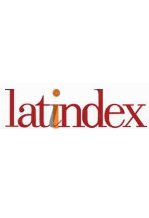A ABORDAGEM AUSTRÍACA DO CICLO ECONÔMICO
Abstract
The Austrian economic theory approach, which we will summarize, questions the state's ability to improve the results of economic activity. The objective is to present as didactic as possible a modeling that offers great applicability to studies of economic crises resulting from strong state interventions in economic activity. The theory identifies in credit market manipulation the source of the distortions that give rise to the economic cycle. The expansion of bank credit without a prior increase in savings leads to an artificial reduction in interest rates. With the additional volume of lower interest credit, entrepreneurs embark on overly ambitious and unsustainable long-term projects. The result is always a crisis or a reduction in the potential economic growth rate.
Downloads
References
BOETKE, Peter (org.). Elgar Companion to Austrian Economics. Cheltenham: Edward Elgar Publishing, Inc., 1994.
BOETKE, Peter (org.). Handbook on Contemporary Austrian Economics. Cheltenham: Edward Elgar Publishing, Inc., 2010.
BÖHM-BAWERK, Eugen V. The Positive Theory of Capital. New York: G. E. Stechert & Co., 1930.
CACHANOSKY, Nicolás, and Alexandre Padilla, "A Mathematical Version of Garrison's Model," in Quarterly Journal of Austrian Economics 19, no. 3 (Fall 2016): 225–247. Available at: https://mises.org/library/mathematical-version-garrisons-model. 26 nov 2019.
COSTA, Fernando Nogueira da. O Paradoxo da Poupança segundo Hayek. Blog Cidadania & Cultura, Posted on 22/02/2018. Available at: https://fernandonogueiracosta.wordpress.com/2018/02/22/o-paradoxo-da-poupanca-segundo-hayek/. 03 dec. 2019.
DAVIDSON, Roy Ruxton. An Application to New Zealand’s Recent Boom and Bust. Econ 591-12C Dissertation. January 2013. Available at: https://studyres.com/doc/13199470/austrian-business-cycle-theory--an-application-to-new-zea....25 nov 2019.
DAVIES, Logan. Understanding Business Cycles – Eccentric Economics . Being Libertarian. March 10, 2019. Available at: https://beinglibertarian.com/understanding-business-cycles-eccentric-economics/. 25 nov 2019.
EBELING, Richard M. The Austrian Theory of the Trade Cycle and Other Essays. Auburn: Ludwig von Mises Institute, 1996.
FRIEDMAN, Milton. Inflation: Causes and Consequences. First Lecture. Bombay: Asia Publishing House for the Council for Economic Education (Bombay), 1963. Reprinted in Dollars and Deficits: Inflation, Monetary Policy and the Balance of Payments. Englewood Cliffs, New Jersey: Prentice-Hall, 1968. Available at: https://miltonfriedman.hoover.org/friedman_images/Collections/2016c21/1200.pdf. 05 dec. 2019
GARRISON, Roger W. The Austrian School: Capital-Based Macroeconomics in Brian Snowdon and Howard R. Vane Modern Macroeconomics: Its Origins, Developmient and Current State Aldershot: Edward Elgar, 2005. Available at http://webhome.auburn.edu/~garriro/cbm.htm.
GARRISON, Roger W. Time and Money: The macroeconomics of capital structure. London: Routledge, First edition 2001.
GARRISON, Roger W. Time and Money: The macroeconomics of capital structure. London: Routledge, 2006.
GARRISON, Roger W. Time and Money: The macroeconomics of capital structure. Auburn University Website. Selected Firgures. Available at: http://webhome.auburn.edu/~garriro/figsweb0.htm. 25 nov 2019.
HABELER, Gottfried. Money and the Business Cycle. Originalmente publicado em Gold and Monethary Stabilisation, Chivago, University of Chicago, 1932. In EBELING (1996).
HAYEK, Friedrich. Can We Still Avoid Inflation? Lecture given at the Foundation for Economic Education at Tarrytown, New York May 18, 1970. In EBELING (1996).
HAYEK, Friedrich. Desemprego e Política Monetária. 2ª edição. São Paulo: Instituto Ludwig von Mises Brasil. 2011.
HAYEK, Friedrich. Individualism and Economic Order. Chicago: University of Chicago Press, 1948.
HAYEK, Friedrich. Inflação, má alocação da mão de obra e desemprego. Conferência pronunciada em 8 de fevereiro de 1975 no congresso Convegno Internazionale. In HAYEK (2011).
HAYEK, Friedrich. Prices and Production. 2nd ed. New York: Augustus M. Kelly Publishers, 1967.
HAYEK, Friedrich. Profits, Interest and Investment. Clifton: Augustus M. Kelly Publishers, 1975.
HORWITZ, Steven. Inflation. In BOETKE (1994[a]).
HORWITZ, Steven. Microfoundations and macroeconomics: an Austrian perspective. London: Routledge. 2000.
HORWITZ, Steven. Subjectivism. In BOETKE(1994[b]).
KLEIN, Peter G. Prefácio In MENGER (2007).
LACHMANN, Ludwig M. Capital and its structure. 2nd edition. Kansas City: Sheed Andrews and McMeel Inc., 1978.
LEWIN, P., & CACHANOSKY, N. (2018). THE AVERAGE PERIOD OF PRODUCTION: THE HISTORY AND REHABILITATION OF AN IDEA. Journal of the History of Economic Thought, 40(1), 81-98. doi:10.1017/S105383721700013X
LEWIN, Peter. Capital theory. In BOETKE (1994) pp. 209-215.
MENGER, Carl. Principles of Economics. Auburn: Ludwig von Mises Institute, 2007.
MISES, Ludwig von. Ação Humana: Um Tratado de Economia. 3ª ed. São Paulo: Instituto Ludwig von Mises Brasil, 2010.
MISES, Ludwig von. The Theory of Money and Credit. New Haven: Yale University Press, 1953. 493 p.
ROTHBARD, Murray A Grande Depressão Americana. São Paulo: Instituto Ludwig von Mises Brasil, 2012.
ROTHBARD, Murray N. Man, Economy and State with Power and Market. Scholar's Edition, 2nd edition. Auburn: Ludwig von Mises Institute, 2009.
SHIRAKAWA Masaaki. Is inflation (or deflation) “always and everywhere” a monetary phenomenon? My intellectual journey in central banking. BIS Papers No 77. Globalisation, inflation and monetary policy in Asia and the Pacific Proceedings from the People’s Bank of China-BIS. Research Conference on “Globalisation and inflation dynamics in Asia and the Pacific”. Monetary and Economic Department, March 2014.
SOTO, Jesús H. Moeda, Crédito Bancário e Ciclos Econômicos. São Paulo: Instituto Ludwig von Mises. Brasil, 2012.
Downloads
Published
How to Cite
Issue
Section
License
The copyright of papers published in the Revista de Economia Mackenzie belongs to the authors, who grant to the Mackenzie Presbyterian University the exclusive rights to publish the content. Total or partial reproduction is prohibited without due authorization of the Editorial Committee, except when it is previously authorized.










